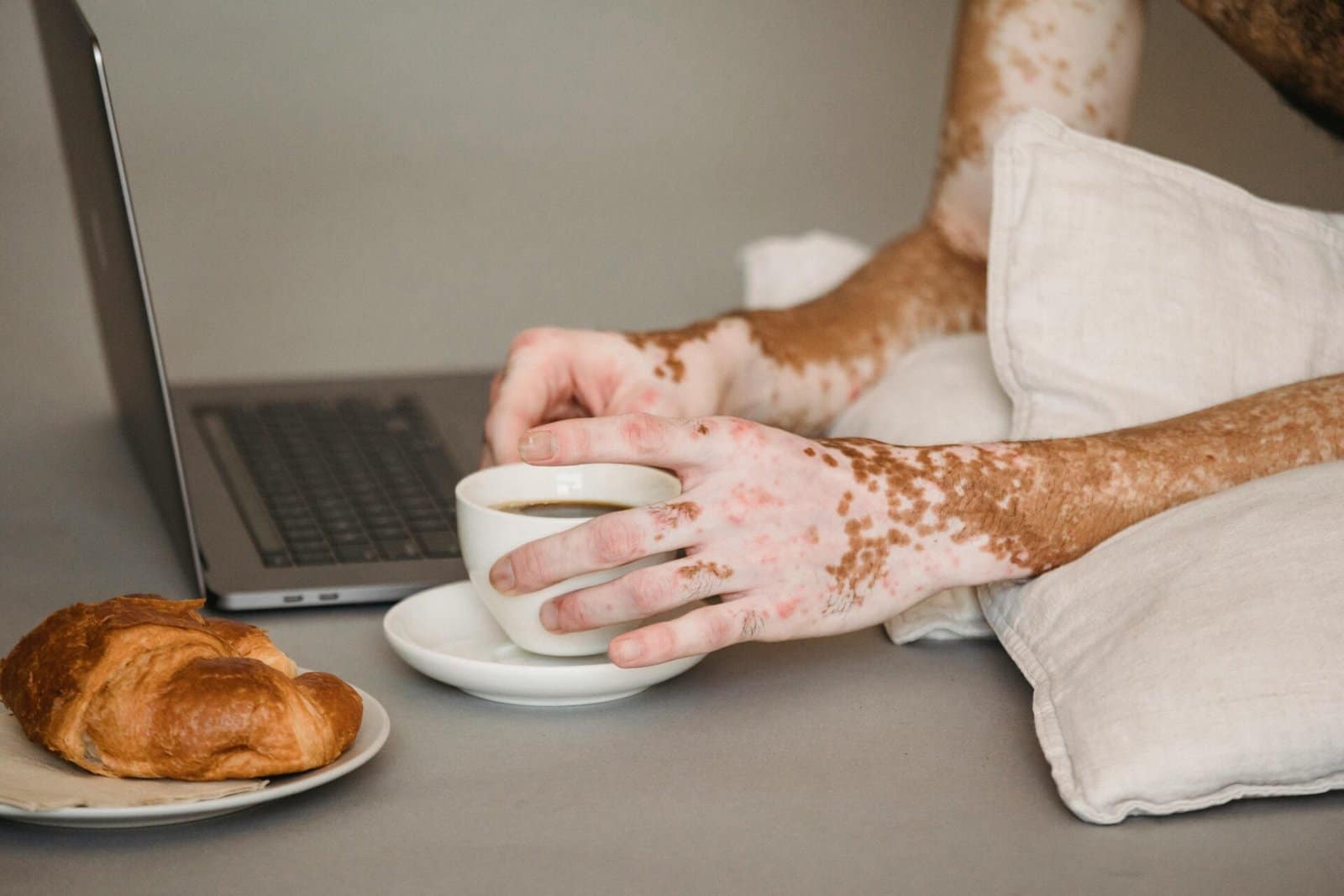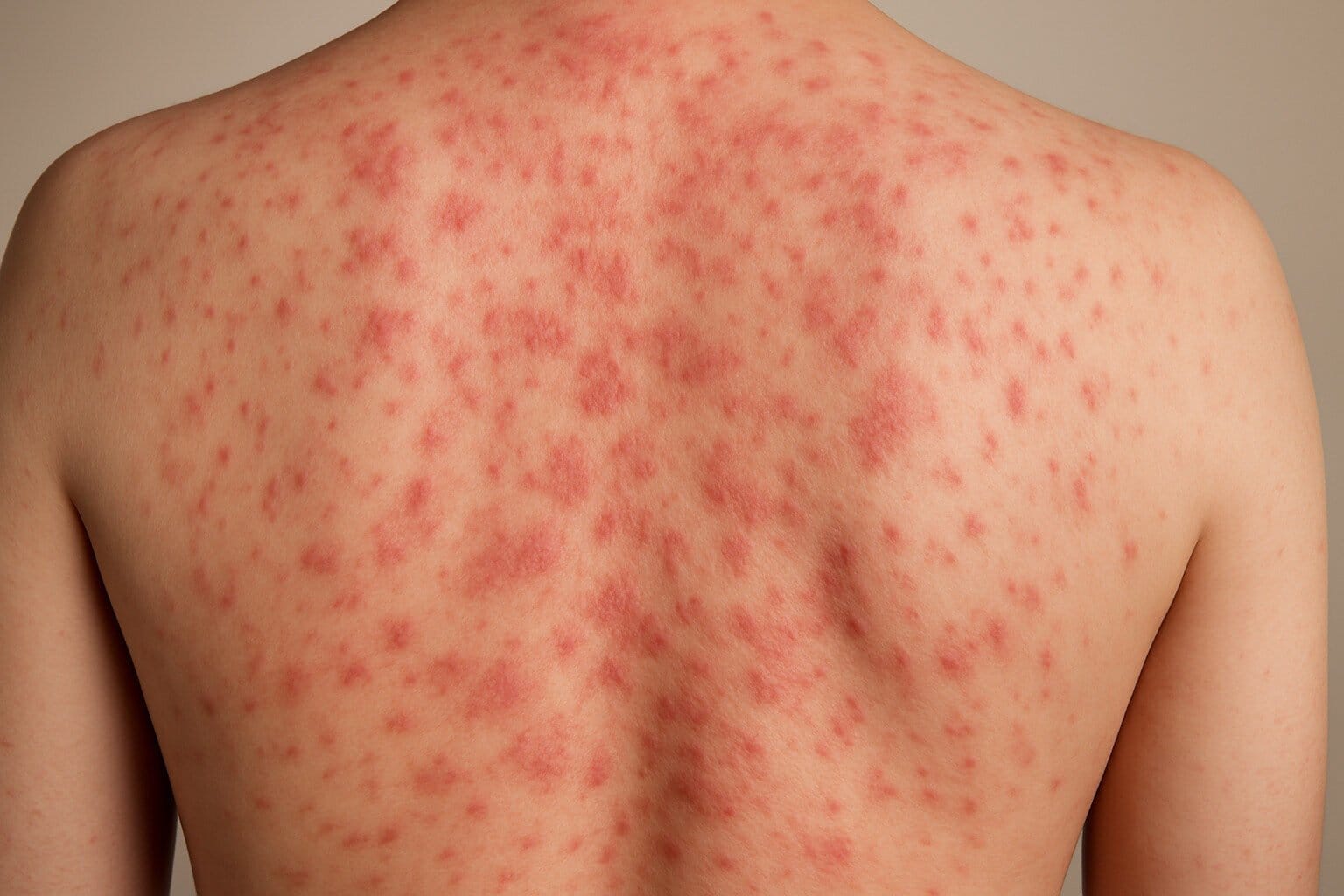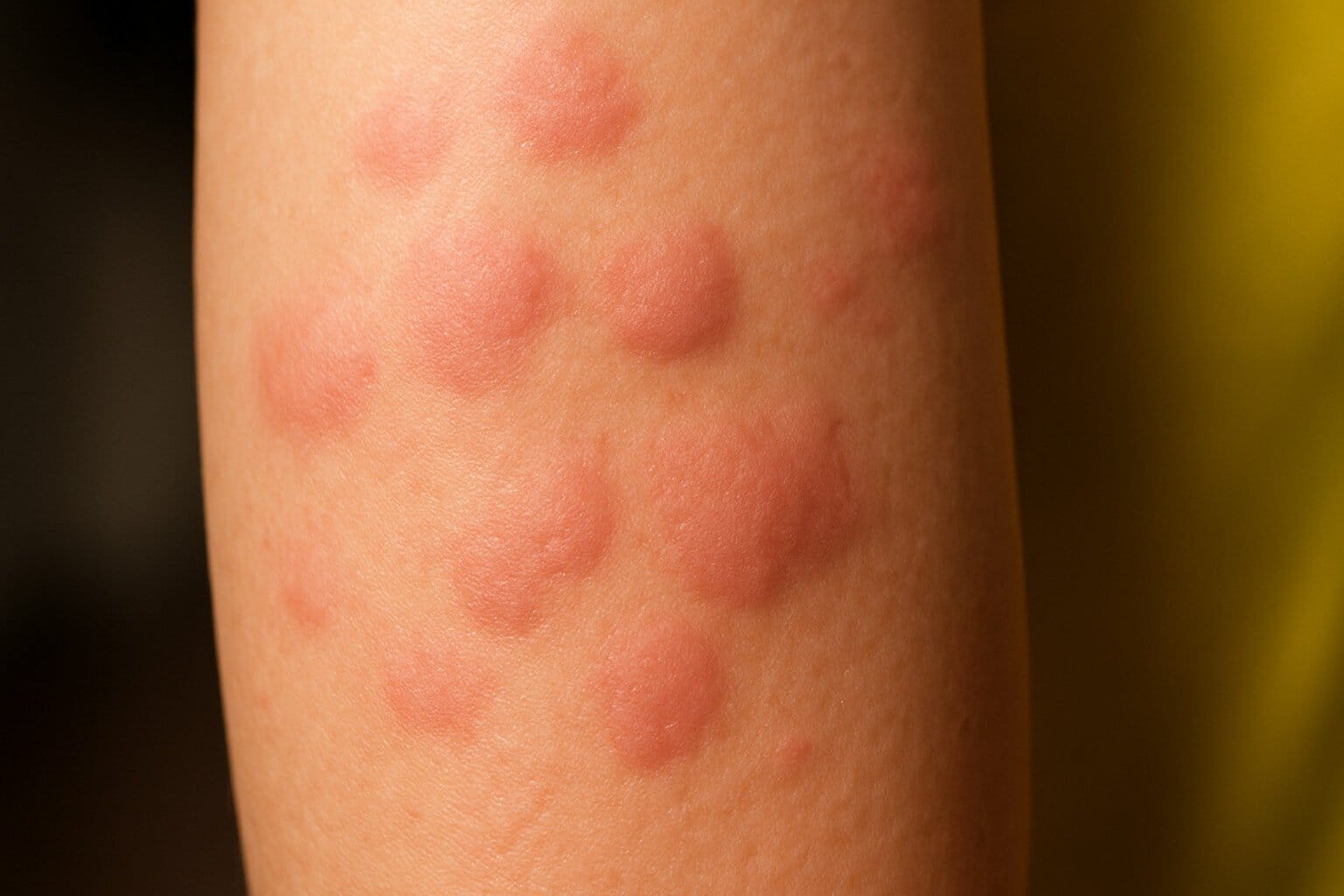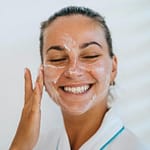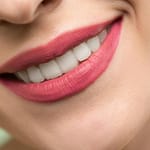Skin SOS: How to Identify and Fix the 7 Most Annoying Skin Issues
- Common Skin Problems
- How to Identify the Root Cause of Skin Issues
- When to See a Dermatologist
- Must Have Ingredients in Your Skincare Routine
- How to Build a Personalized Skincare Routine
- Tips for Maintaining Healthy Skin
- Top Dermatologist-Recommended Brands
- Suggestion
- Frequently Asked Questions (FAQs)

Common Skin Problems
Is your skin throwing tantrums you can’t explain? Whether it’s surprise pimples before a big event or mysterious dry patches that just won’t go away, skin issues are more common than we think. Our skin is our body’s largest organ and often reflects our overall health. A glowing complexion can be a sign of inner balance, while breakouts, dryness, or discoloration can signal something’s off.
There are several factors contribute to frustrating skin problems:
- Hormonal changes
- Harsh weather conditions
- Poor skincare routines
- Stress and lack of sleep
- Poor diet and dehydration
Internal vs. External Triggers
While products and pollution can impact your skin externally, internal factors like hormonal imbalance and gut health play a huge role too. Understanding these triggers is the first step in solving skin problems effectively.
1. Acne Breakouts
Acne is a skin condition where hair follicles become clogged with oil and dead skin cells, leading to pimples, whiteheads, and blackheads.
It may be caused by the following reasons:
- Hormonal fluctuations
- Oily skin and clogged pores
- Bacteria (Propionibacterium acnes)
- Certain cosmetics and medications
How to use any anti acne products?
- Cleanse twice daily with a gentle, salicylic acid cleanser.
- Apply benzoyl peroxide or tea tree oil to active pimples.
- Moisturize with non-comedogenic lotion.
- Spot treat with sulfur or clay masks.
Brand Products That Can Help:
- CeraVe Foaming Cleanser
- Neutrogena Rapid Clear Spot Gel
- The Ordinary Niacinamide 10% + Zinc 1%
- Paula’s Choice 2% BHA Liquid Exfoliant
Natural or Homemade Remedies
- Honey + Cinnamon Mask: Natural antibacterial duo.
- Green Tea Toner: Reduces inflammation.
- Aloe Vera Gel: Soothes active pimples.
2. Dry and Flaky Skin
Dry skin lacks moisture, leading to tightness, itchiness, and sometimes cracks or flakiness. It is caused by the following factors most of the time.
- Cold weather
- Harsh soaps
- Dehydration
- Long hot showers
How to Use Hydrating Products?
- Use a gentle hydrating cleanser (no sulfates).
- Apply hyaluronic acid serum on damp skin.
- Follow with a thick cream moisturizer.
- Use occlusives like Vaseline overnight for intense hydration.
Brand Products That Can Help:
- La Roche-Posay Lipikar Balm AP+
- CeraVe Moisturizing Cream
- Neutrogena Hydro Boost Water Gel
- Aveeno Daily Moisturizing Lotion
Natural or Homemade Remedies:
- Oatmeal Mask: Soothes and hydrates.
- Coconut Oil Massage: Deep nourishment.
- Milk Compress: Gently exfoliates and moisturizes.
3. Oily and Shiny Skin
Oily skin feels greasy, especially on the forehead, nose, and chin. It often leads to clogged pores and acne. It usually happens due to:
- Overactive sebaceous glands
- Genetics
- Hormonal shifts
- Wrong skincare products
How to Use Oil-Control Products:
- Use gel cleansers with salicylic acid.
- Apply oil-free moisturizers.
- Blot with mattifying papers or powders.
- Use clay masks 1-2 times a week.
Brand Products That Can Help:
- Clean & Clear Oil-Free Cleanser
- Innisfree Volcanic Clay Mask
- The Ordinary Niacinamide
- Murad Oil and Pore Control Mattifier
Natural or Homemade Remedies:
- Fuller’s Earth (Multani Mitti) Mask
- Tomato Pulp Rub: Natural astringent.
- Apple Cider Vinegar Toner: Balances pH.
4. Dark Circles and Puffiness
Dark circles are discoloration under the eyes, while puffiness is caused by fluid retention or inflammation. The most common triggers for Dark Circles are:
- Lack of sleep
- Allergies
- Genetics
- Aging skin
How to Treat Effectively?
- Use cold compresses in the morning.
- Apply caffeine eye serums.
- Get adequate sleep and elevate your head while sleeping.
Brand Products That Can Help:
- The INKEY List Caffeine Eye Cream
- Clinique All About Eyes
- Olay Eyes Ultimate Eye Cream
Natural or Homemade Remedies:
- Cold tea bags (green or black tea)
- Cucumber slices
- Potato juice for lightening pigmentation
5. Hyperpigmentation and Dark Spots
Hyperpigmentation refers to areas of skin that become darker due to excess melanin. The following factors eventually lead to hyperpigmentation:
- Sun exposure
- Acne scars
- Hormonal imbalances
- Skin trauma
How to Use Brightening Products?
- Use Vitamin C serum every morning.
- Apply niacinamide and alpha arbutin at night.
- Always wear broad-spectrum SPF 30+ daily.
Brand Products That Can Help:
- The Ordinary Alpha Arbutin
- TruSkin Vitamin C Serum
- Ambi Fade Cream
- Murad Rapid Dark Spot Corrector
Natural or Homemade Remedies
- Lemon + Honey Mask (use sparingly)
- Papaya Paste
- Turmeric and Yogurt Mix
6. Redness and Rosacea
Redness usually shows up as flushed cheeks, visible blood vessels, or irritated skin. Rosacea is a chronic condition that includes redness, swelling, and sometimes acne-like bumps. Following are the reasons that may cause Redness or Rosacea:
- Heat and sun exposure
- Spicy foods or alcohol
- Emotional stress
- Harsh skincare products
How to Use Soothing Treatments?
- Cleanse gently with fragrance-free formulas.
- Apply anti-inflammatory serums (like azelaic acid).
- Use moisturizers with ceramides to repair the barrier.
- Apply SPF daily even if your are indoors!
Brand Products That Can Help:
- Eucerin Redness Relief
- Avene Antirougeurs Calm Soothing Cream
- Paula’s Choice Calm Repairing Serum
- La Roche-Posay Rosaliac AR Intense
Natural or Homemade Remedies:
- Chamomile Tea Compress
- Cucumber Gel
- Aloe Vera Mixed with Licorice Extract
7. Large and Clogged Pores
Enlarged pores appear mostly on the nose and cheeks and are often clogged with oil and debris, leading to blackheads. They appear due to the following reasons:
- Excess oil production
- Loss of skin elasticity
- Improper cleansing
- Dead skin buildup
How to Minimize Pores?
- Double cleanse to remove oil and makeup.
- Use exfoliants like salicylic acid 2–3 times a week.
- Apply pore-tightening toners.
- Use clay masks weekly.
Brand Products That Can Help:
- The Ordinary Salicylic Acid Solution
- Bioré Deep Cleansing Pore Strips
- Kiehl’s Rare Earth Deep Pore Cleanser
- Paula’s Choice Pore-Reducing Toner
Natural or Homemade Remedies:
- Egg White Mask: Temporarily tightens pores.
- Baking Soda Scrub: Mild exfoliation.
- Tomato Juice Toner
How to Identify the Root Cause of Skin Issues?
Skin issues rarely appear without a reason. To get to the bottom of recurring skin problems, consider the following:
Skincare Missteps:
- Using too many products at once
- Over-cleansing or skipping moisturizer
- Choosing products not suited for your skin type
Diet and Hormones:
- High sugar and dairy intake can cause breakouts.
- Hormonal imbalances, like PCOS or thyroid issues, can cause acne, dryness, and pigmentation.
Lifestyle Stressors:
- Chronic stress
- Lack of sleep
- Smoking or alcohol consumption
When to See a Dermatologist
Signs You Need Professional Help
- Persistent breakouts
- Painful cysts or nodules
- Rapid spreading of rashes or pigmentation
- No improvement despite over-the-counter treatments
What to Expect During a Visit
- Skin type analysis
- Prescription treatments (like retinoids or antibiotics)
- Personalized skincare regimen
Must Have Ingredients in Your Skincare Routine
| Ingredient | Purpose |
|---|---|
| Hyaluronic Acid | Deep hydration, plumpness |
| Niacinamide | Oil control, brightening, barrier repair |
| Salicylic Acid | Exfoliation, acne control |
| Retinol | Anti-aging, pigmentation, acne treatment |
| Vitamin C | Brightening, antioxidant protection |
How to Build a Personalized Skincare Routine
Morning Routine
- Gentle Cleanser
- Vitamin C Serum
- Moisturizer
- Broad-Spectrum Sunscreen
Night Routine
- Cleanser
- Exfoliating Toner (2-3x per week)
- Treatment Serum (Retinol/Niacinamide)
- Moisturizer or Night Cream
Tips for Maintaining Healthy Skin
- Drink plenty of water daily.
- Sleep for 7–8 hours a night.
- Eat a balanced diet rich in antioxidants.
- Stick to your skincare routine consistency is key.
- Never sleep with makeup on.
- Always wear sunscreen rain or shine
Top Dermatologist-Recommended Brands
| Brand | Why It’s Recommended |
|---|---|
| CeraVe | Affordable, barrier-repairing formulas |
| La Roche-Posay | Great for sensitive skin, gentle yet effective ingredients |
| The Ordinary | Budget-friendly actives with targeted treatments |
| Neutrogena | Widely available and dermatologist-developed solutions |
| Eucerin | Especially great for eczema, rosacea, and dry skin |
Suggestion
Tackling skin concerns doesn’t have to feel like a mystery. By understanding how to identify and fix the 7 most annoying skin issues, you take a big step toward reclaiming your confidence and achieving radiant, healthy skin. Whether you prefer dermatologist-approved products or natural remedies, what matters most is knowing your skin, treating it kindly, and staying consistent.
Frequently Asked Questions (FAQs)
1. Can I use home remedies along with branded products?
Yes, but introduce them gradually. Always patch-test and avoid combining strong actives with DIY treatments.
2. Why is my skin breaking out despite using good products?
It could be due to diet, hormones, stress, or incorrect product layering. Review your entire routine and lifestyle.
3. How long does it take for new skincare to work?
Most products need 4–6 weeks to show visible improvement. Patience and consistency are essential.
4. Are natural remedies better than chemical ones?
Not always. While natural ingredients are gentler, they may not be as effective or well-studied. A balance of both works best.
5. How often should I exfoliate?
2–3 times a week is ideal. Over-exfoliating can cause redness, sensitivity, or more breakouts.
6. What’s the biggest mistake people make with skincare?
Using too many products or switching routines too often. Simplicity and consistency yield the best results.
Subscribe to our newsletter!
